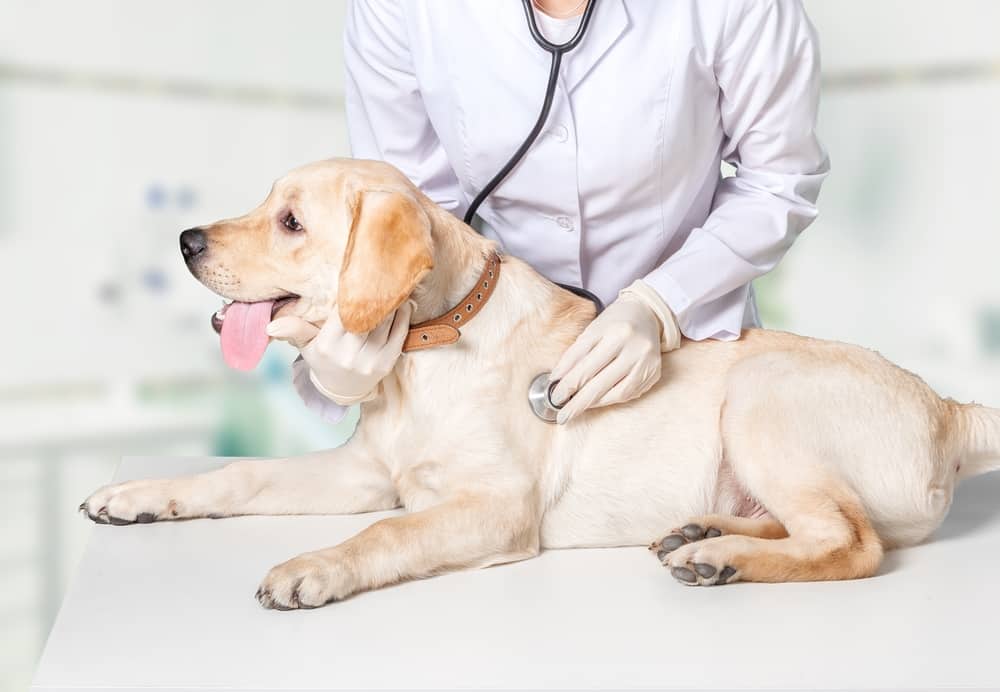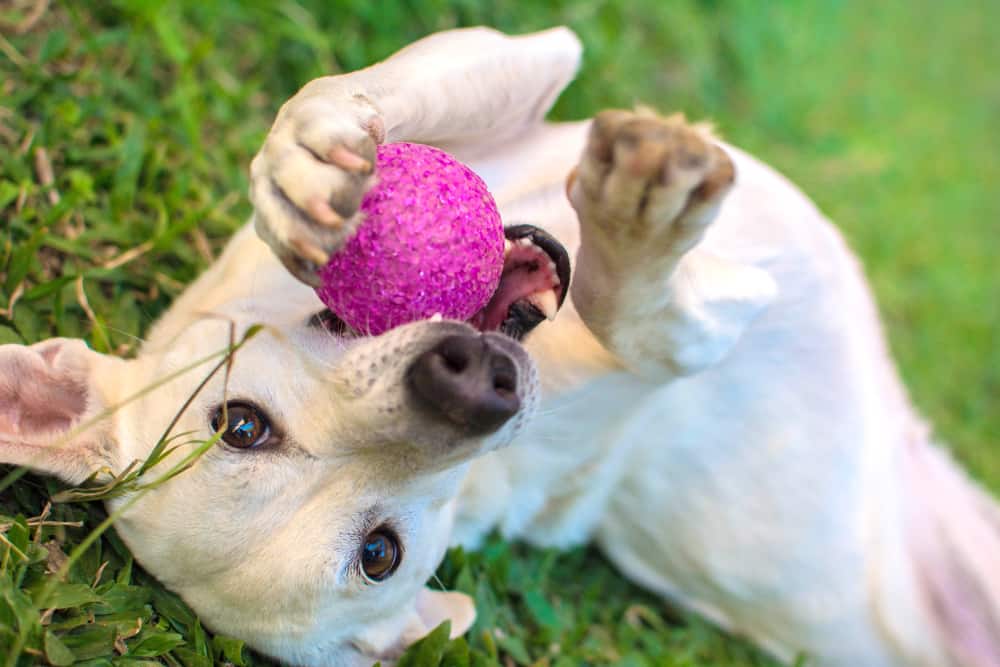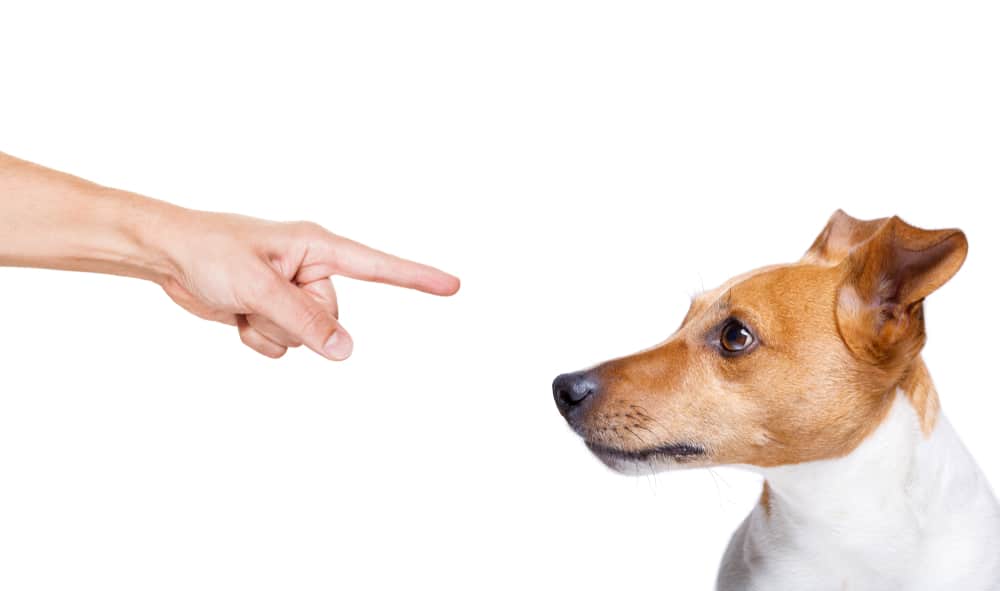Why Do Dogs Eat Rocks?

It’s no secret that dogs love to chew, and their idea of what they should gnaw on varies vastly from our own. Dogs seem to love the soft, supple, stinky experience of an insole in his mouth, but we’d perhaps prefer the insole stay intact within his shoe. Often, dogs don’t just eat the insoles; they rip them up (ah, the life of a dog owner: feeling lucky when a shoe has been ruined but not swallowed).
But what happens when our dogs go beyond chewing and actually ingest non-food objects? That depends on the object. Grass, for instance, is relatively harmless.
Rocks, on the other hand, are much less tolerable. Dogs cannot digest rocks and thus may struggle with passing them through their bodies, and all too often surgery is required to remove them. Furthermore, rocks can crack dogs’ teeth.
Obviously, it can be problematic for a dog to eat rocks even once, but there are some dogs, to their owners’ dismay, who seem to enjoy chowing down on rocks regularly. The compulsive desire to eat non-food objects such as rocks is often referred to as pica.
What Causes Dogs to Eat Rocks?
When a dog is diagnosed with pica, the situation is much the same. There are so many potential reasons a dog may be eating rocks (or other non-food items) that it can be difficult to pinpoint exactly why your dog is doing so. Still, if you can manage to find the root of the problem, then it is much easier to curb your dog’s appetite for rocks.

Causes of Pica
According to a handout given to students studying veterinary medicine at UC Davis, causes of pica include:
- Nutritional deficiencies or other medical problems
- Boredom or lack of enrichment
- Anxiety
- Teething
- Compulsive disorder
Best Friends Animal Society adds the following to the list of potential causes:
- Anemia
- Behavioral disorders
- Diseases causing excess appetite (like diabetes)
- Gastrointestinal disease
- Liver disease
- Medications such as prednisone
- Neurologic diseases
- Pancreatic disease
As you can see, some of these causes are serious medical issues, whereas others are behavioral issues, some of which are easier to solve than you might think. We’ll discuss that in a bit, but first, it’s important to figure out whether the issue is medical or behavioral.
If Your Dog Is Eating Rocks, You Need to See a Vet Immediately
As we explained earlier, eating rocks is dangerous for your dog as the rocks may be unable to pass through the digestive system and exit safely out the rear-end. Your vet will perform a routine exam, which includes checking a dog’s heart rate, temperature, ears, gums, and teeth.
If anything else is off here, it could give your vet a hint about what’s going on with your dog. They will also assess if any damage has been done that needs remedying.
If any of the teeth are found to be cracked or broken, oral surgery will be required to remove the tooth. Since your dog is a rock eater, expect the vet to perform an x-ray to search for obstruction in the intestine. The vet will also check to see if any perforation of the colon or stomach has occurred.
This may also lead to surgery if your dog has, in fact, eaten rocks that can’t pass through their body or some substantial damage has been done. Other tests, such as a blood test, may be required to determine if your dog has any nutritional deficiencies or other underlying issues.
Certain parasites can cause dogs to eat just about anything, including rocks. The vet can diagnose and prescribe medication in this instance to kill the parasite and hopefully return your dog to normal.
Nutritional deficiencies go hand-in-hand with the presence of parasites, but if a parasite has been ruled out, it may be a case of needing to change up your dog’s diet, which we’ll discuss later. You’ll be asked a number of questions about your dog’s behavior as well.
If your veterinarian finds your pooch to be in good health, the problem may be behavioral in origin.
How You Affect Your Dog’s Behavior
There are a few things to think about in terms of how your actions might affect your dog. You may be unaware of these things as it’s not always obvious how your actions could be having a negative effect on them. If you’re worried about your dog eating rocks and the vet considers them otherwise healthy, then think about the following.
Think About You and Your Dog’s Lifestyle
Do you spend a lot of time interacting with your dog? Are you away from home a lot? Has your dog ever displayed any anxious behaviors? Does your dog have access to engaging toys? A lack of enrichment can sometimes cause a dog to partake in such strange behaviors as eating rocks. By having access to good chew toys, it can help alleviate anxiety caused by you being away.
If you are away from home for long periods of time or don’t interact much with your dog, it may be affecting them negatively and causing their pica. In his book, Dog Sense, John Bradshaw explains that dogs are incredibly attached to humans, and that it is likely that nearly 20% of dogs experience distress while their owners are away.
He also suggests that dogs were far more comforted by their owner’s presence than the presence of their long-term doggy companions when placed in an unfamiliar environment. During friendly interactions with humans, dogs’ oxytocin and dopamine levels were shown to increase significantly. This all goes to show how important it is to your dog’s mental health that you spend time with them.
Stress Levels in Dogs
Another point Bradshaw made was that many people often don’t realize that their dogs are distressed when left alone because their dogs don’t leave behind any signs. We often associate separation anxiety with destruction, defecation, and urination.
But many dogs that experience distress due to their owners’ absence do not display any of these behaviors. Instead, they may pant, pace, or bark, but you would never know since you aren’t around to see (or hear) it.
Therefore, if your dog has ever displayed distress or anxiety in any type of situation, it is worth considering that your dog may also be prone to distress when you are gone. If you’ve ever gotten complaints from neighbors about your dog barking while you’re away, it may be a sign that your dog is distressed by your absence. This stress could lead to such compulsive behaviors as eating rocks.
Boredom
Many a naughty dog has been cured of their misbehavior through play and activity. Dogs that don’t get enough physical or mental stimulation tend to get themselves into trouble because they are bored, and chewing on your Doc Martens — or rocks, in this case — relieves that frustration.
Providing your dog with lots of toys isn’t enough, as they tend to get bored with their toys rather quickly. One way to circumvent this is to rotate your dog’s toys. Play with a few toys for a week and then switch them out for different toys the next week. Aside from play, training your dog is a great way to provide mental stimulation, and it has the added benefit of reinforcing your dog’s obedience (but don’t be afraid to teach your dog some fun tricks, too!).

If you’ve gone through the basics of giving your dog more exercise, attention, and play and still haven’t seen any change in their propensity to dine on rocks, you may want to consider seeking the help of a reputable trainer or animal behaviorist. However, until you’re able to figure out the cause of the problem, you’ll need to focus on prevention.
How to Prevent Your Dog From Eating Rocks
If your veterinarian or animal behaviorist can diagnose either a medical or behavioral problem, then treatment will be based on that diagnosis. However, it can often be difficult to pinpoint the exact cause of your fur baby’s hunger for rocks, and until you can figure it out, the best solution is often prevention. Here are some things you can do to help stop your dog eating rocks.
Manage Your Dog’s Environment
Pick up all of the rocks you can find. It may be beneficial to limit your dog to a small section of your yard so that it is easier to maintain. You should also monitor your dog whenever you let them outside so you can be certain they aren’t eating anything they shouldn’t be.
Use a Muzzle
Though many people associate muzzles with aggressive dogs, they are actually useful in a variety of situations, and this is one of them. There are a few different types of muzzles available, but a basket muzzle would be your best choice. This is because basket muzzles don’t hold your dog’s mouth shut, so they are still able to pant and even eat treats.
With this type of muzzle, you can safely take your dog on a walk because it will prevent them from picking up rocks while still allowing them to cool their body via panting. A basket muzzle will also allow you to let your dog out in your yard without having to worry too much about them gobbling up a bunch of rocks.
If you decide to use a basket muzzle, make sure you use treats to train your dog to wear it so that they form a positive association with the muzzle. Fit is also important, as some dogs will be able to paw the muzzle off if it isn’t fit properly.
Train Your Dog the “Leave It” Command
Because of dogs’ propensity to pick up or eat objects they shouldn’t, “leave it” is a valuable command to train. If your dog already knows “leave it,” you may need to work on reinforcing the command when rocks are around, especially if your dog’s desire to eat rocks is greater than their desire to listen to you.
The basket muzzle we mentioned before is great for this situation. Your dog won’t be rewarded with a delicious rock if they ignore your command, which is important both for the success of your training and your dog’s health. If they listen to you, though, you will still be able to give them a treat through the basket.
While a successful “leave it” can certainly prevent rock-eating, the downside to this approach is that you have to be around to tell your dog to leave rocks alone.
Use Operant Conditioning to Redirect Your Dog’s Attention
Renowned animal behaviorist Patricia McConnell, Ph.D., suggests teaching your dog to turn away from rocks by giving them something better. The process involves letting your dog see the rocks and rewarding them every time they turn away from them. You may have to lure them away at first, though. Dr. McConnell explains how to use this operant conditioning on her website. If it is done successfully, you’ll have a dog that comes running to you when they see rocks instead of instantly gobbling them up.
Try Adding More Variety to Your Dog’s Diet
Even if your vet has determined that your dog isn’t suffering from any nutritional deficiencies, adding variety to your dog’s diet can be beneficial. Changing your dog’s kibble every few months will help you avoid deficiencies and keep your dog from getting bored of their food. If you’re a diehard fan of your current kibble, you can supplement it with fresh foods like meat, eggs, and vegetables (some dog-safe veggies include carrots, green beans, and squash).

Don’t Punish Your Dog for Eating Rocks
When nothing seems to be working to prevent your dog from eating rocks, you may feel frustrated enough to opt for punishment. You may think that remonstrating your dog through the use of shock collars or pinch collars would work as a deterrent.
Unfortunately, this type of treatment is largely ineffective and can make the problem worse by causing your dog to gobble up rocks even faster. Dogs can habituate pain and will simply ignore negative stimuli if their desire to eat rocks is great enough.
Final Words
So, why do dogs eat rocks? Unfortunately, there is no simple answer to that question. It could be an underlying medical issue like diabetes or nutritional deficiency. Or, it could be due to behavioral issues such as anxiety. In other cases, the cause is a lack of enrichment in the dog’s life.
It’s important that dogs get proper exercise, mental stimulation, and attention from their humans. Finding the cause of your dog’s interest in scarfing rocks can often be quite difficult, and until you figure things out, the best course of action is prevention.
Remove rocks from your yard, use a basket muzzle when going on walks or to places like parks, use training to your advantage, and remember to avoid using punishment. Solving this problem can be stressful, but know that you have your fur baby’s best interests in mind and will be able to get through it.




